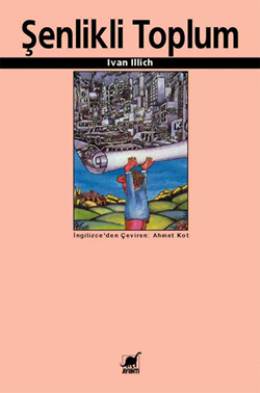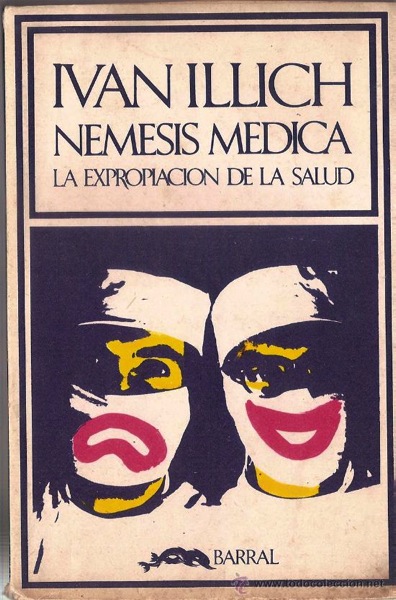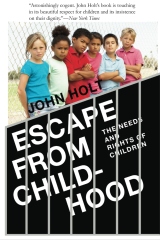A 1970 essay by Ivan Illich, "The False Ideology of Schooling," is available for viewing on the Web at a site called Unz.org, an eclectic library of periodicals, books, and other materials. The essay was published in The Saturday Review for Oct. 17. 1970, which the Unz site makes available in its entirety, here. The issue's cover story package is Revolution and Education in Latin America, and it includes two articles in addition to Illich's: "Cuba's Schools, Ten Years Later," and "Brazil, a Giant Begins to Stir."
A taste of the text:
The central issue of our time remains the fact that the rich are getting richer and the poor poorer. This hard fact is often obscured by another apparently contradictory fact. In the rich countries, the poor have access to a quantity and quality of commodities beyond the dreams of Louis XIV, while many of the so-called developing countries enjoy much higher economic growth rates than those of industrialized countries at a similar stage of their own histories. From icebox to toilet and from antibiotic to television, conveniences Washington could not have imagined at Mount Vernon are found necessary in Harlem, just as Bolivar could not have foreseen the social polarization now inevitable in Caracas. But rising levels neither of minimum consumption in the rich countries nor of urban consumption in the poor countries can close the gap between rich and poor nations or between the rich and poor of any one nation. Modern poverty is a by-product of a world market catering to the ideologies of an industrial middle class. Modern poverty is built into an international community where demand is engineered through publicity to stimulate the production of standard commodities. In such a market, expectations are standardized and must always outrace marketable resources.
[…]
The cultural revolutionary must be distinguished from not only the political magician but also both the neo-Luddite and the promoter of intermediary technology. The former behaves as if either the noble savage could be restored to the throne or the Third World transformed into a reservation for him. He opposes the internal combustion engine rather than oppose its packaging into some product de- signed for exclusive use by the man who owns it. Thus, the Luddite blames the producer; the institutional revolutionary tries to reshape the design and distribution of the product. The Luddite blames the machine; the cultural revolutionary heightens awareness that it produces needless demands. The cultural revolutionary must also be distinguished from the promoter of intermediary technology who is often merely a superior tactician paving the road to totally manipulated consumption.
Let me illustrate what I mean by a cultural revolution within one major international institution, by taking as an example the institution that currently produces education. I mean, of course, obligatory schooling: full-time attendance of age-specific groups in a graded curriculum.
Latin America has decided to school itself into development. This decision results in the production of homemade inferiority. With every school that is built, another seed of institutional corruption is planted, and this is in the name of growth.
Schools affect individuals and characterize nations. Individuals merely get a bad deal; nations are irreversibly degraded when they build schools to help their citizens play at international competition. For the individual, school is always a gamble. The chances may be very slim, but everyone shoots for the same jackpot. Of course, as any professional gambler knows, it is the rich who win in the end, and the poor who get hooked. And if the poor man manages to stay in the game for a while, he will feel the pain even more sharply when he does lose, as he almost inevitably must. Primary school dropouts in a Latin American city find it increasingly difficult to get an indus- trial job.
(The Illich essay is listed towards the bottom of this table of contents page. To download a copy of the essay in PDF format, the following actions seem to be necessary: First, click on the PDF tag associated with the Illich essay's title; a new page will appear showing four pages the magazine, which you can scroll through vertically. Only the first three of these pages are part of Illich's essay. Now, click on the words "Full Page" to bring up a new window, at the Google Docs site. [This may require being signed into a Google account, which we happened to have done previously.] There, you will see the same four pages again along with, at upper right, a button marked 'Download original.' Click that button and you'll be shown the pages in standard PDF, ready to save.
Unfortunately, Illich's piece jumps to page 68, outside of these four initial pages, and retrieving that last page requires a similar sequence: Back at the table of contents, click on the PDF link associated with the listing "Asking the Right Questions … pp. 66-70." Again, a new page pops up and now, click on "Full Page" there. A Google Docs page will appear showing a scrolling set of magazine pages, from p. 66 to p.71; click on 'Download original' button up top and again, you'll see the pages in standard PDF, ready to save.)




